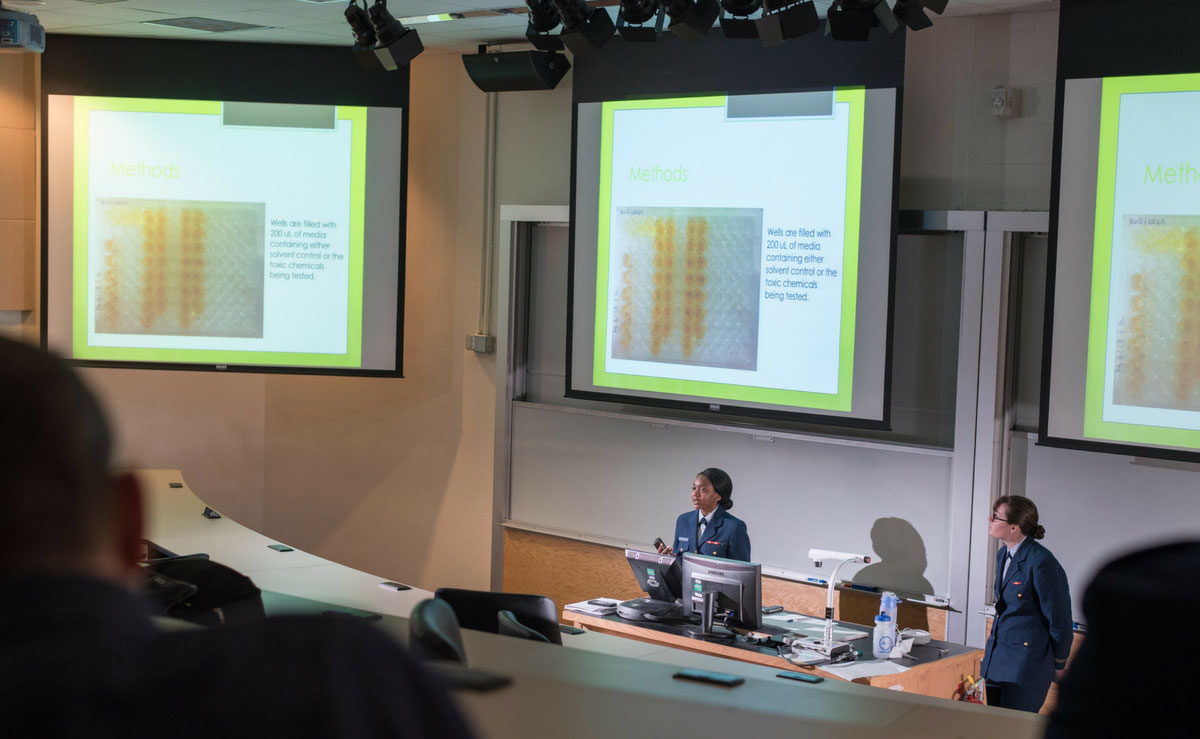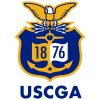
Research Projects
Marine and Environmental Sciences
All Marine and Environmental Sciences (MES) cadets participate in faculty-led research projects where they work in small groups in areas of the professor’s expertise as part of a three course capstone series beginning in the spring of 2/c year. Capstone research allows MES students to explore a topic of particular interest in greater depth, while gaining the project-management and problem-solving skills that are key to the scientific method. Cadets write research proposals, carry out the research, and present their work at Cadet Research Day as well as at national conferences.
Independent research is carried out through two elective courses – a one-credit projects course that prepares students for the three-credit research course. In the projects course, students conduct a thorough literature search, identify the appropriate methodology and then write a research proposal for their three-credit, semester-long research course. Students are able to present their research at Cadet Research Day as well as at regional and national conferences.
Cadet Research Opportunities
MES majors are able to extend their learning beyond the classroom through a wide range of research opportunities. Recent research studies have included:
